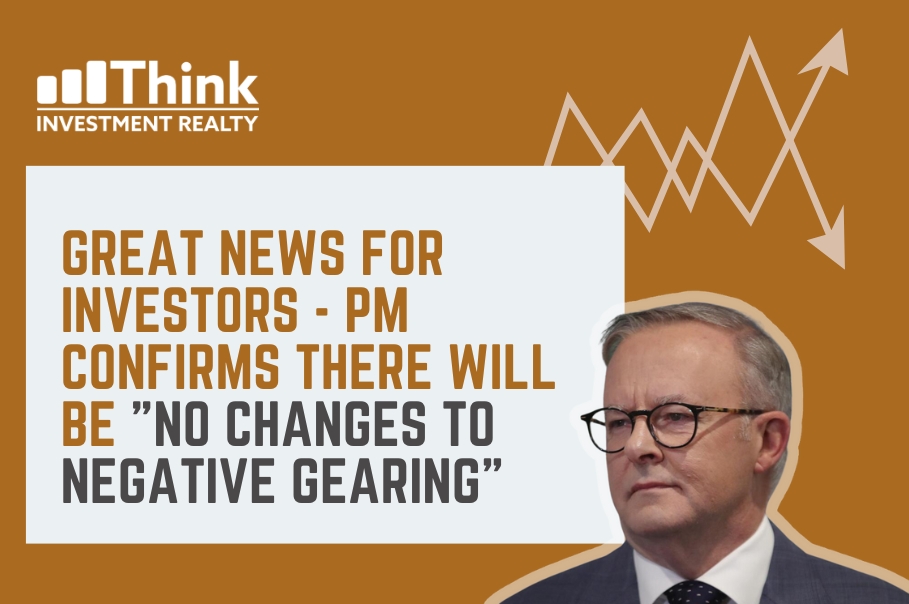Great news for investors – Albanese rules out changes to negative gearing
The Prime Minister made a resolute decision last week, ruling out any modifications to negative gearing, in a move aimed at safeguarding housing investment. This decision comes amidst ongoing debates surrounding the potential consequences of altering this policy, with concerns raised about its impact on the economy and employment.
Deloitte’s 2019 modelling projected significant negative outcomes if changes were made to negative gearing. The analysis indicated a potential 4.1 percent decline in housing construction, a $1.5 billion reduction in GDP, and the potential loss of 7,000 jobs. Considering the current economic landscape, which includes rising capital costs and labor challenges, the impact of such changes would likely be even more severe.
Preserving housing investment has been a priority for the government, particularly in light of the commitment to deliver one million new homes by 2029. The Prime Minister emphasised that altering negative gearing could undermine this goal, especially when combined with state government decisions that have already been hindering apartment supply through foreign investor surcharges.
The Prime Minister also questioned the efficiency of changing negative gearing and Capital Gains Tax (CGT) solely for revenue generation purposes. Instead, alternative approaches such as boosting and broadening the Goods and Services Tax (GST) while eliminating inefficient stamp duties and foreign investor surcharges were suggested as potential options to consider.
The Prime Minister’s position on maintaining the current negative gearing policy stems from the mandate received during the 2022 election, as the government strives to uphold its commitments. This clarification was provided on May 16 to dispel any doubts surrounding the government’s stance.
However, the pressing national housing challenge remains an issue that requires attention. Governments at various levels have been criticised for evading responsibility in implementing effective systems to address housing supply deficits and for tax settings that discourage new housing development. The consequences of these shortcomings are becoming increasingly evident across the country.
Elected representatives, responsible for managing underperforming planning systems and those who may not fully consider the cumulative tax burdens on new housing supply, as well as those advocating for limited urban growth, all play a role in reducing the potential supply of new homes. It is crucial not to lose sight of these challenges while addressing the pressing need for increased housing availability.
The Prime Minister’s steadfastness in preserving housing investment and opposing changes to negative gearing reflects the government’s determination to address the housing crisis while ensuring stability and growth in the housing sector.
Negative Gearing has been in place since the 80’s, and it isn’t surprising to us that the Prime Minister has decided to leave things alone. As we have always pointed out to our clients, every time a government threatens to make changes to Negative Gearing, they have lost the election. Labour has suffered this fate on several occasions.
Why? Two big reasons. Most governments are reliant on the donations and investments from their wealthy supporters, and most wealthy people have multiple property investments and secondly Australia is in serious short supply of housing and property with plans for hundreds of thousands of immigrants to arrive over the next few years. It is therefore critical property investment is encouraged.
The best way to create wealth is to buy property, but not just any property, Troy has years of experience in teaching his clients the how, the when and the where of accelerating property wealth.
There are a number of ways to gain this knowledge and get assistance from Troy and his team, make an appointment to see Troy, come to one of the many events on offer each month or if you aren’t exactly local book a zoom or teams call to chat online.










